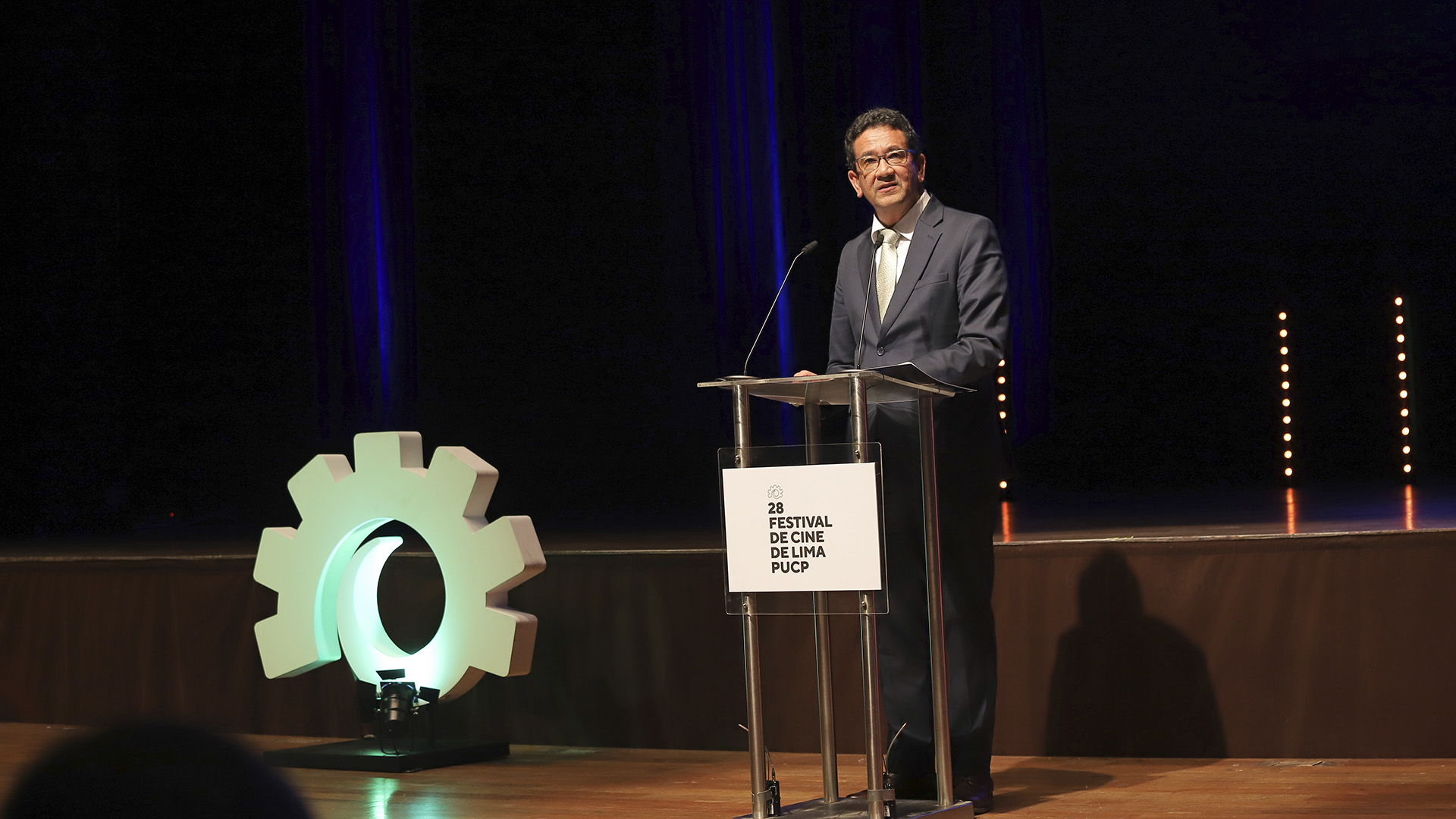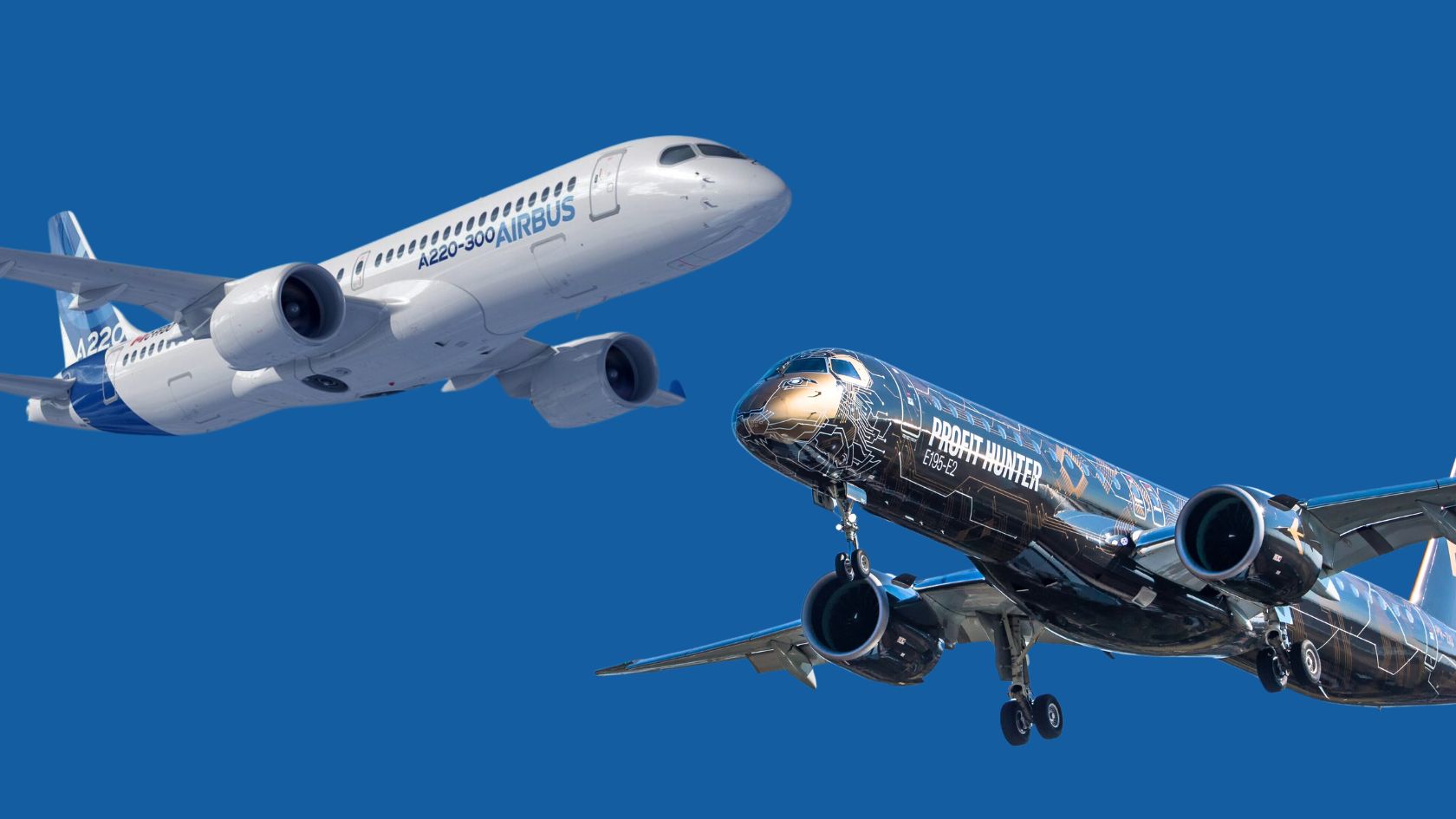*Speech given at the opening of the 28th Lima PUCP Film Festival, on August 8, 2024, at the Gran Teatro Nacional
I want to start with a special greeting, from my heart, to my father, who taught me from my childhood to go to the cinema with joy and enthusiasm. In my case, to the weekend matinees; then, and always with him, to the films for which it was necessary to be accompanied by an older person. For example, with him I was able to see Excaliburby John Borman, at the beloved Ambassador cinema in Lince. Then, I learned to choose the films I wanted to see, because I could now walk alone in life. These are memories that have always been with me and I wanted to start with this personal note because I know very well that there is nothing unusual about it, that what I have just recalled – the memory of the first images of cinema associated with our loved ones, with our first sentimental education – is a shared experience, not to say “universal”. Cinema is, in short, an endearing act of life.
Coming from my side, I tell you that we are very happy to have you at this, our Lima Film Festival, which in its twenty-eighth year is, for the Pontifical Catholic University of Peru, a renewed opportunity for encounter and openness, to strengthen alliances and complicity for culture, for art and for the country that demands it.
Our Lima Film Festival is a renewed opportunity for encounter and openness, to strengthen alliances and complicity for culture, for art and for the country that demands it.”
Specifically regarding this request, which is also a commitment, I would like to greet and thank our two presenters of this festival: the BBVA Foundation and the Ministry of Culture, which are today a clear example of the need for art to join forces and support. Thank you very much.
I address you, dear audience, not only as the new rector of the Pontifical Catholic University of Peru, but also as someone who, with a solid team, assumes the responsibility and challenge of being the voice that represents the plurality of voices that identify our university.
The words come. I want to start weaving them from the very idea of challenge. And I want to link challenge with art, especially with cinema. “Challenging” implies breaking away from custom. Making visible what is not yet visible. Changing the way we look at things and surprising, challenging the expected. And I want to do this with a very simple question: What happens when you go to the cinema?
The inauguration of the 28th FCL PUCP took place at the Gran Teatro Nacional.
The mere fact of deciding to go to the cinema is an event that we do not usually think about, as it may have become a habit and even a routine. Habit silences wonder. I would like these few words to renew our sense of wonder, because going to the cinema is going to encounter a story, freely and with pleasure preparing to be taken to places that the imagination creates. Many times it also means exposing yourself to being shown aspects of reality that you would not like to see.
Going to the movies is giving up your daily routine to sit in a seat and let yourself go. There is magic in the movies. It often happens that it was just an outing, a pastime; many times, it was fun. And that’s okay. It’s important to have a good time. Laugh out loud at a good comedy. Other times, however, the story told on the screen changed your life. In my case, there were several movies that changed my life. They challenged me and made me uncomfortable. Challenge. That was the word. Let’s keep it in mind.
Cinema has the ability to transform our mind, our sensitivity, our present. What we are. You wouldn’t be sitting here, waiting for the start of a film festival, if you didn’t feel it.”
Cinema, as an art form, has that: I mean the power to challenge, to open our eyes, to make our hands feel more, to sharpen our hearing more, to broaden the horizon of our gaze and to make the beating of our hearts more lucid or desperate. Cinema also has the possibility of transforming our mind, our sensitivity, our present. What we are. You wouldn’t be sitting here, waiting for the start of a film festival, if you didn’t feel it.
To achieve this, however, for the spark to burst forth and for the moment of wonder and transformation to occur, a special condition is necessary, that inscrutable magic that is inspiration. Inspiration is the spark that moves us, energizes us, conquers us and bursts forth to make a dream not just a fiction, but a tireless search for opportunities that allow it to become reality and, from this created reality, an action that inspires many more wills like the group that brings us together today under the film festival. We are all here willing to play that game of fiction and reality or of fiction that moves reality.
To love cinema is, therefore, to give in to wonder. The same goes for education. You have to believe in it. You have to believe in it as a good. The same goes for the University. The same goes for our rights and hopes. We have to believe in them and fight for them.”
All of this, however, implies that I am willing to take on the challenge: nothing happens if I don’t let the story be told, if I don’t give in to my disposition. To love cinema is, therefore, to give in to wonder. The same thing happens with education. You have to believe in it. You have to believe in it as a good. The same thing happens with the University. The same thing happens with our rights and hopes. You have to believe in them and fight for them. The annual custom can make it go unnoticed that this festival, as well as those of previous years, is a commitment to generation and the stimulation of art and culture, which are our creative mechanisms of wonder and an invaluable opportunity to recognize ourselves, meet ourselves, celebrate ourselves and affirm our ideals.
Let’s talk about ideals. I think it’s important to situate the challenging role of art in general and cinema in particular at a time like this, when our country is facing an increasingly deep political crisis that often translates into instability or hopelessness in the face of the constant attack on the foundations of our public life, our democracy, our dreams of building an equitable, inclusive country where all people can enjoy their freedom. Many of us perceive that we are beginning to be governed by a kind of apathy, a loss of hope for the possibility of achieving changes through collective action that will allow us to build the equity and justice that our country so badly needs. This hopelessness is worrying. Here the struggle is clearly for democracy, for respect for democratic values and institutions, whatever the political tendency; the struggle is for generous and intelligent dialogue that allows us to build consensus for the common good.
The hopelessness is worrying. Here the struggle is clearly for democracy, for respect for democratic values and institutions, whatever the political tendency; the struggle is for generous and intelligent dialogue that allows building consensus for the common good.”
This new administration at the PUCP has responsibly assumed the commitment to be a decisive voice that is heard in the country and globally. Precisely that voice today firmly supports the need for an adequate administration of justice without impunity and without censorship, as well as the firm defense of a quality education for all, which is accompanied by the promotion of culture and an empathy free of doubts for the care of people and the environment, which is our common home. With our eyes fixed on this, we educate.
And that is why it is important, it is urgent, to talk about culture in Peru today, because it is also among those areas of public life that are today under threat of restrictions and of being victims of intolerance. Culture must be defended among us as the space of creativity and wonder, as the area of resistance and of the construction of a just and inclusive national memory, as the place of defiance in the face of everything that contradicts human well-being and fundamental rights. Art, in general, provokes us in many ways and we must salute this healthy provocation.
Culture must be defended among us as a space for creativity and wonder, as a place for resistance and for building a just and inclusive national memory, as a place of defiance in the face of everything that contradicts human well-being and fundamental rights.”
And, within this universe of culture, cinema, that persistent provocateur, has a central place and must be defended. It must be defended, in the face of intolerance, as the space that helps us remember and understand ourselves as a country; it must be cared for, protected. Artists must feel safe when creating. And, for this reason, we want this festival that brings us together for the twenty-eighth time to be understood also as a gesture of support and defense of the freedom of our creators in the world of cinema, which is also defending the freedom of the spectators and, in the long run, of the entire country. We want these days to be a motor that strengthens in each of our hearts a sense of memory, a sign of identity, a purpose for loyalty, an axis of attraction and stimulus for love and for loving; especially for our country, especially for its future, thinking precisely about the 200 years of its independence.
For all these reasons, it is my wish and that of the entire governing team that the Lima PUCP Film Festival be, in 2024, a voice that demands freedom and independence to create, to feel, to remember and to challenge, because we are the evidence of an increasingly fruitful national production with more box office and critical success at national and international level. The cinema that we will enjoy during the next ten days must be irrefutably a builder of a collective meaning and identity where the primacy of freedom vibrates, where the stimulus arises from the common need to think and feel, without any censorship and in as diverse a way as possible.
The cinema that we will enjoy over the next ten days must be irrefutably a builder of a collective meaning and identity where the primacy of freedom vibrates, where the stimulus arises from the common need to think and feel, without any censorship and in as diverse a way as possible.”
That is our University, that is our essence and that is our motto: plurality, openness, interculturality, dialogue, respect, excellence in the expression of ideas and sensibilities and gratitude, much gratitude, to all those people who risk creating culture and knowledge. Support for them is necessary; it is a commitment to the present and the future of this country.
We extend our arms to you on behalf of the PUCP and invite you to enjoy the Lima Film Festival so that we may rediscover the essence that unites us, through art and culture, to listen to each other and make our country an integral community that does not give up its dream of building, every day, a better present that reconciles, embraces and connects us for the same objective: the Peru we dream of, the Peru for which we work today.
Welcome to your festival, our festival, where everyone is always welcome! Thank you very much!


